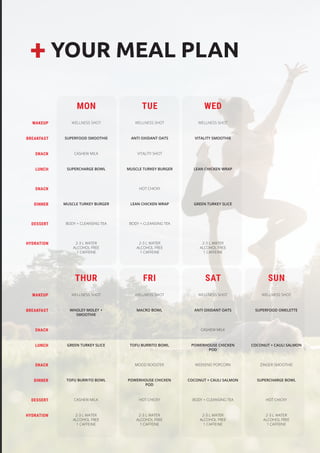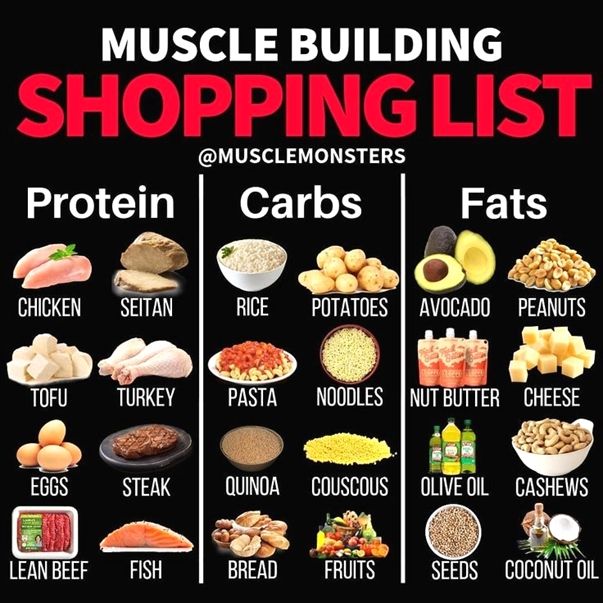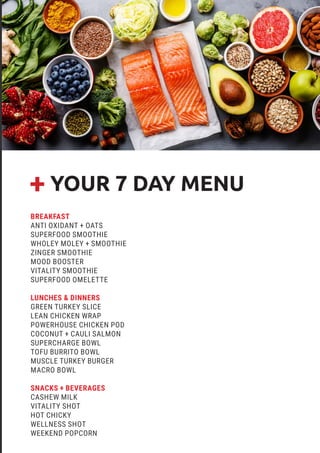“`html
Optimize Your Muskelaufbau Diet: Comprehensive Ernährungsplan for 2025 Success!

Embarking on a fitness journey to achieve your Muskelaufbau goals requires more than just a solid workout routine; it demands a strategic and tailored Ernährungsplan. In 2025, the focus on optimizing your diet will be paramount, as successful muscle growth hinges on a delicate balance of macronutrients—protein, carbohydrates, and healthy fats. This guide will provide you with essential insights into effective meal planning, nutrient distribution, and personalized dietary approaches that fuel your workouts while aligning with your individual fitness objectives.
Understanding Your Proteinbedarf for Optimal Muscle Growth
To build muscle effectively, understanding your proteinbedarf (protein requirements) is crucial. Protein is the building block of muscle tissue, and adequate intake not only supports growth but also aids in recovery and maintenance. Various factors affect your protein needs, including your body weight, activity level, and overall fitness goals.
Calculating Your Protein Needs in Detail
Generally, athletes and those engaged in regular strength training require significantly higher protein levels than the average person. A common guideline suggests consuming about 1.6 to 2.2 grams of protein per kilogram of body weight for muscle hypertrophy. However, it’s essential to tailor your intake based on individual responsiveness to protein and muscle recovery rates.
Incorporating Eiweißreiche Ernährung into Your Diet
Eiweißreiche Ernährung (protein-rich diet) consists of lean meats, dairy, legumes, and plant-based proteins. Implementing these foods into your diet can help ensure you meet or exceed your daily protein goals. Be mindful of protein quality and digestibility to maximize muscle protein synthesis.
Foods to Boost Your Protein Intake
Incorporate high-quality protein sources such as chicken, fish, eggs, Greek yogurt, and legumes. Plant-based protein options include quinoa, soy products, and lentils. To maximize uptake, engaging in protein distribution throughout your meals and snacks during the day is ideal.
Mastering Macronutrients: Essential Components For Muscle Building
The balance of macronutrients is vital in your Ernährungsplan. Each macronutrient plays a unique role in muscle growth, recovery, and overall performance. Understanding how to structure your carbohydrate and healthy fat intake can create a well-rounded, impactful dietary approach.
Smart Kohlenhydrate for Fueling Your Workouts
Kohlenhydrate (carbohydrates) serve as the body’s primary energy source, especially during high-intensity workouts. Including complex carbohydrates like whole grains, fruits, and vegetables can provide sustained energy. Prioritize carbohydrate intake before and after your workouts to replenish glycogen stores.
Integrating Healthy Fette into Your Meals
Gesunde Fette (healthy fats) support muscle recovery and hormone production, contributing to overall health. Sources include avocados, nuts, seeds, and oily fish. Balancing your fat intake with respect to your energy levels and preferences is essential for achieving your fitness goals.
Meal Planning for Macronutrient Proportions
Use meal planning strategies to ensure you meet your macronutrient ratios. This may involve tracking your food intake using fitness apps to help monitor your Kalorienüberschuss (caloric surplus) and adjust accordingly.
The Role of Supplements in Muscle Growth
While a well-balanced diet is key, supplements can play a complementary role in achieving your fitness goals. Proper supplementation tailored to your specific needs can enhance recovery and nutrient intake.
Popular Nahrungsergänzung (Supplement) Options
Common supplements include protein powders, creatine, branched-chain amino acids (BCAAs), and omega-3 fatty acids. Consult a fitness expert or nutritionist before starting any supplement regimen to ensure compatibility with your fitness and nutritional needs.
Timing Your Supplements for Maximum Impact
When you take your supplements can influence their effectiveness. Pre-workout supplements may enhance performance during training, while post-workout supplements can support recovery. Timing can become part of your overall strategy for coherent Ernährungsberatung (nutritional advice).
Fitness-Ziele: Setting Milestones for Success
Establishing clear and realistic fitness goals is essential for long-term success. It’s not just about the workout, but also how you integrate nutrition with your training plan. Achieving your muscle growth targets requires a strategic approach to both aspects.
Creating SMART Goals for Your Fitness Journey
Employ the SMART (Specific, Measurable, Achievable, Relevant, Time-bound) criteria to set your fitness goals. This method facilitates progress tracking and helps maintain motivation. Documenting your milestones can substantially enhance your accountability.
Utilizing Fortschrittskontrolle to Stay on Track
Regularly evaluating your progress through measurements like body composition and workout performance can help you adjust your training and diet. Fitness-Apps can be beneficial for tracking progress over time, ensuring you stay focused and motivated.
Meal Preparation Strategies for Balanced Nutrition
Efficient meal preparation can help ensure you have nutritious options available while eliminating the temptation of unhealthy quick fixes.
Plan Your Meals to Maximize Nutrient Intake
Meal prepping allows you to control nutritional content. Allocate time weekly to prepare meals that cover various macros, keeping combinations of proteins, carbs, and fats in mind.
Snack Ideas That Support Your Fitness Goals
Include healthy snack options, such as protein bars, Greek yogurt, or mixed nuts. These can be beneficial post-workout for muscle recovery and satisfy hunger between meals without derailing your dietary focus.
Physical Fitness and Lifestyle Integration
A successful muscle building journey must consider lifestyle factors. Integrating fitness into your routine fosters sustainable changes in eating habits and exercise practices.
Adopting Healthy Essgewohnheiten (Eating Habits)
Work toward incorporating sustained healthy eating habits. This may involve strategic planning like bulk cooking nutritious meals, which can instill routine and make healthy eating simple.
Managing Stress and Recovery for Continuous Gains
Implementing stress management techniques and ensuring muscular recovery through proper sleep, hydration, and rest are key factors that support muscle growth. Prioritize recovery days within your weekly training regimen.
Conclusion: Committing to Your Muskelaufbau Journey
Success in achieving your Muskelaufbau goals resides in your commitment to a coherent Ernährungsplan that aligns with your fitness aspirations. By understanding your proteinbedarf, mastering macronutrients, effectively timing supplements, and embracing meal prep, you’re poised to make significant strides in your fitness journey. Commit to this essential guide, and you’ll foster not only muscle growth but also a sustainable and healthy lifestyle.

For more detailed insights into muscle building and nutrition practices, consult our resource page or explore our expert tips on diet and training.
“`
